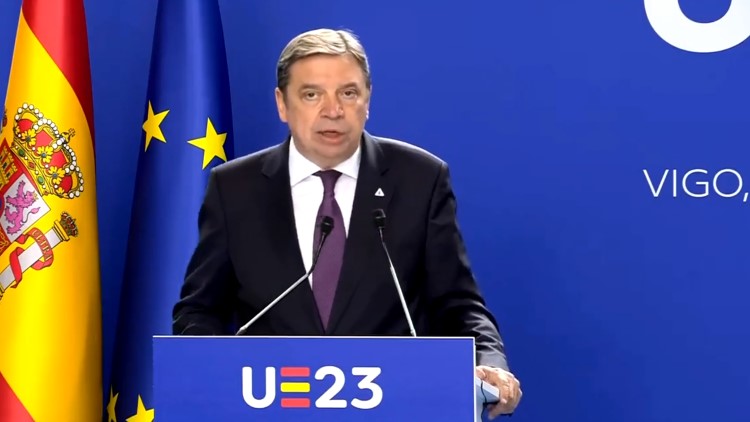The Diplomat
The Minister of Agriculture, Luis Planas, warned yesterday that Russia’s decision not to renew its participation in the agreement on Black Sea cereals shows the intention of Vladimir Putin’s regime to use food as a “weapon of war”. In the same vein, the EU High Representative for Foreign and Security Policy, Josep Borrell, has called for action by the UN General Assembly against Russia’s policy of using “hunger as a weapon”.
At the press conference following the informal Council of EU Agriculture and Fisheries Ministers, held in Vigo, Planas described as “unjustifiable” Russia’s decision not to renew the agreement for the export of grain from Ukraine to emerging countries through the Black Sea. This decision, he continued, is a “textbook example” of the use of food as a “weapon of war” by an invading country, a measure that affects especially the least developed countries.
For this reason, Luis Planas called for the intervention of the UN and the Turkish President, Recep Tayyip Erdogan, as mediator in the conflict, to find a solution to this problem. He also recalled that Russia’s war against Ukraine has generated, “from the beginning”, food problems for poor countries and an increase in inflation in the EU.
For his part, Josep Borrell declared yesterday in Brussels, upon his arrival at the EU-CELAC Summit, that Russia’s decision is “very bad news, one of the worst news for the world”. “The fact that, once again, Ukrainian grain cannot leave Ukraine means that hundreds of thousands of people around the world will be deprived of basic foodstuffs”, he warned.
This decision, he continued, “requires a strong response from the international community,” including “some action at the level of the UN General Assembly,” because “we cannot sit back and just complain.” Russia “is using hunger as a weapon; this is one of the worst things Putin could have done, and did do,” he concluded.
The grain agreement signed by Russia, Ukraine, Turkey and the United Nations has allowed the export of more than 33 million tons of grain since July 2022 and has played a key role in stabilizing grain prices on international markets by limiting speculation, helping to curb the rise in wheat prices on the markets – which had increased by more than 40% in the three months prior to its signing – and to bring market prices of staple foods back to their pre-war levels, or even down from 2021. Extended by 120 days in November 2022, the agreement was renewed for only 60 days in March and May 2023 and has gradually drifted away from its original purpose of ensuring access to grains for the most vulnerable countries.
For this reason, the NGO Action Against Hunger yesterday condemned “the use of this agreement for political purposes” and called for a renewal that “responds to the needs of countries facing food insecurity”, because “the effect of not renewing the agreement can be devastating for regions such as the Sahel”, according to the director of advocacy and institutional relations of Action Against Hunger, Manuel Sánchez-Montero.







